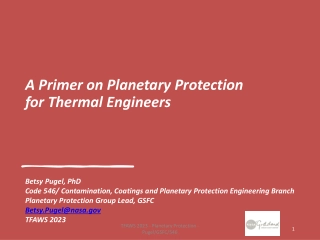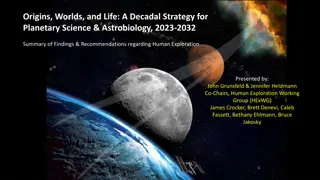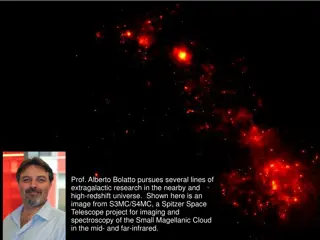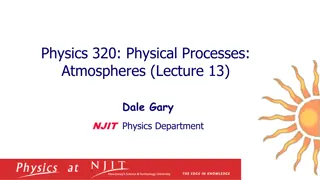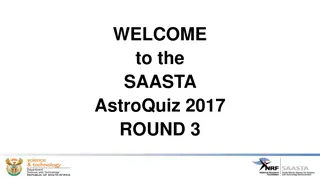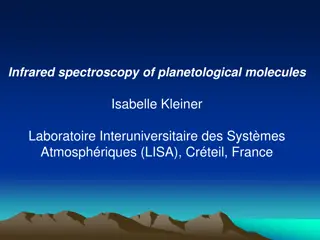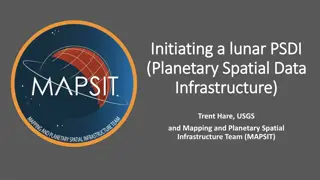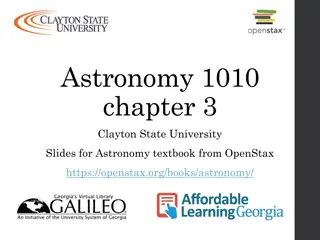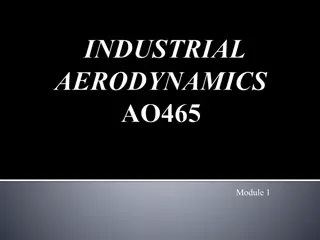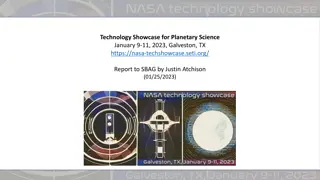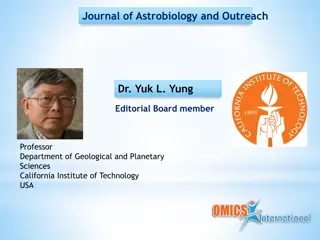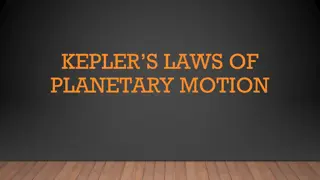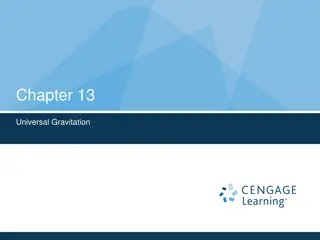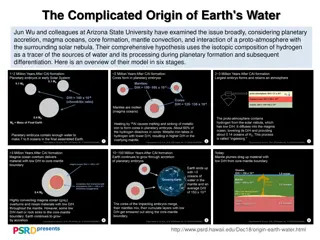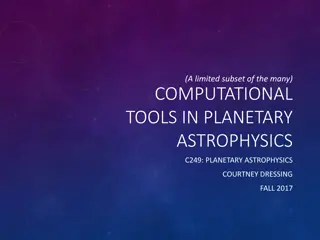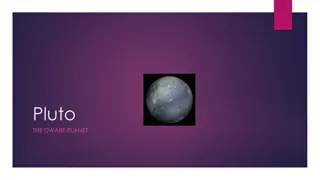Planetary Sciences Class Information
Planetary Sciences class covers a variety of topics and assignments such as participating in Solar System Explorers, homework, and choosing specific topics of interest. Grades are based on participation, papers, presentations, and referee reports. The class also involves Solar System Explorers where students engage in a weekly game to learn about the Solar System. Emailing relevant research articles is required for earning points. The course aims to enhance knowledge and encourage active participation.
Download Presentation

Please find below an Image/Link to download the presentation.
The content on the website is provided AS IS for your information and personal use only. It may not be sold, licensed, or shared on other websites without obtaining consent from the author.If you encounter any issues during the download, it is possible that the publisher has removed the file from their server.
You are allowed to download the files provided on this website for personal or commercial use, subject to the condition that they are used lawfully. All files are the property of their respective owners.
The content on the website is provided AS IS for your information and personal use only. It may not be sold, licensed, or shared on other websites without obtaining consent from the author.
E N D
Presentation Transcript
ASTRONOMY 8850: PlanetarySciences Why Sciences?
How to do well in PlanetarySciences 1. show up to class on time 2. participate in class 3. get/borrow the book Planetary Sciences by de Pater and Lissauer 4. find course website: www.astro.gsu.edu/~thenry/PLANETS 5. find Icarus and Planetary Science Journal (AAS) online 6. do homework --- Solar System Explorers, quiz preparation, etc. 7. choose 2 planetary topic(s) of interest to you write down 3 sentences for each topic DUE TUESDAY, 10 SEP 8. NAIL THE SEMESTER PROJECT --- start EARLY
Grades in PlanetarySciences class participation Solar System Explorers (SSE!) paper Levels 0/1/2/3 presentation referee reports (3 colleagues) referee report (Henry) 10% 10% 20% 20% 20% 20%
Solar System Explorers 2024 Rules: 1. Goal is roughly once each week (Thursdays). 2. You will know the topic a week in advance. 3. You will draw one mini-Mars each week. You will answer the week s question in order of your mini-Mars values. The value on your mini-Mars determines the number of points you can earn that round: 1-3 earns 1 point, 4-6 earns 2 points, 7-9 earns 3 points, and mega-Mars 10 earns 4 points. 4. You may not re-use or re-attempt an answer already mentioned. Be careful not to effectively repeat an answer already given. 5. You must be clear in your answer, and I will be the final judge of whether points will be awarded. Partial points may be awarded. 6. Results will be posted on the course website. This game is for learning and fun, NOT for bickering, backstabbing, or browbeating but it does affect your grade (slightly).
Solar System Explorers 01 Tell us all something about the Solar System we should all know. DUE NOW! 29 AUG Welcome to the realm of mini-Mars(es) and mega-Mars
Solar System Explorers 02 Find any Icarus or Planetary Science Journal article relevant to one of your 2 topics of interest. Email me a .pdf of the full article by the beginning of class: DUE THURSDAY, 05 SEP Get 5 points in Solar System Explorers.
Solar System Inventory stars planets moons ring systems minor planets 1 8 288a 4 (+2+1?) 1,388,018 785,048 829 432 5,040 2,559 3,962b 3,535b some JPL 2024 AUG 28 JPL 2024 AUG 28 JPL 2018 AUG 20 JPL 2024 AUG 28 JPL 2018 AUG 20 JPL 2024 AUG 28 JPL 2018 AUG 20 JPL 2024 AUG 28 JPL 2018 AUG 20 Centaurs Trans-Neptunian Objects comets dust a add 5 for Pluto b any type
Nomenclature terrestrials jovians minor planets asteroids Trans-Neptunian Objects (TNOs) Plutinos Centaurs comets Jupiter-family, Chiron-type, Halley-type Mercury, Venus, Earth, Mars many moons gas giants ice giants Jupiter, Saturn Uranus, Neptune Main Belt Near-Earth Objects (NEOs) Trojans and Greeks (SSE!) and Hildas (Classical) Kuiper Belt Objects (KBOs) Scattered Disk Objects (SDOs)
Solar Family How are they different?
Planet Orbits Planetary Sciences
Planet Orbits a (AU) P (yr) e Mercury Venus Earth Mars 0.39 0.72 1.00 1.52 0.24 0.62 1.00 1.88 0.206 0.007 0.017 0.093 Jupiter Saturn Uranus Neptune 5.20 9.54 19.19 30.07 11.86 29.46 84.01 164.79 0.048 0.056 0.046 0.009
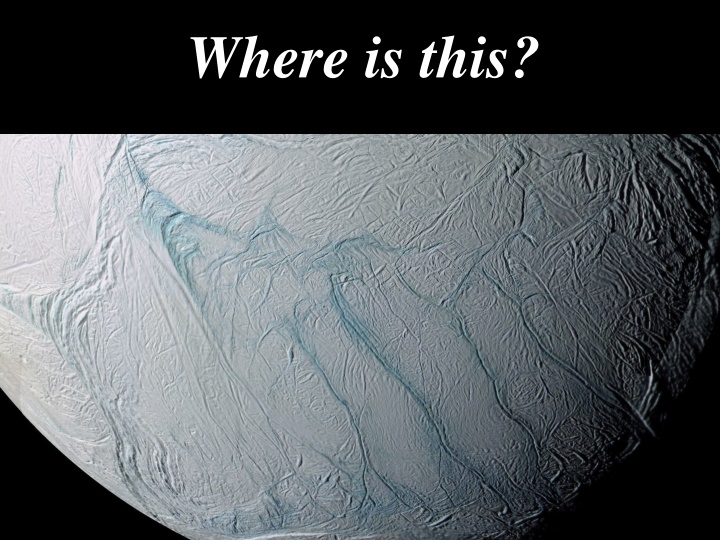

![❤[PDF]⚡ Planetary Ring Systems (Springer Praxis Books)](/thumb/21506/pdf-planetary-ring-systems-springer-praxis-books.jpg)
